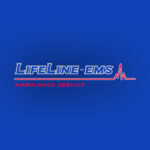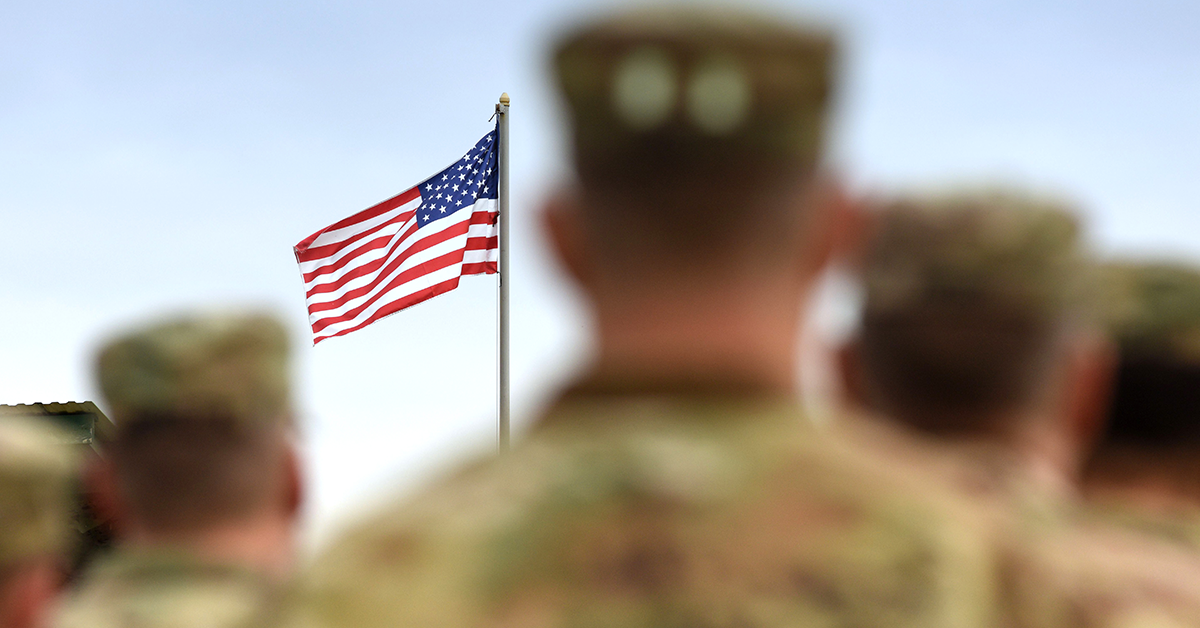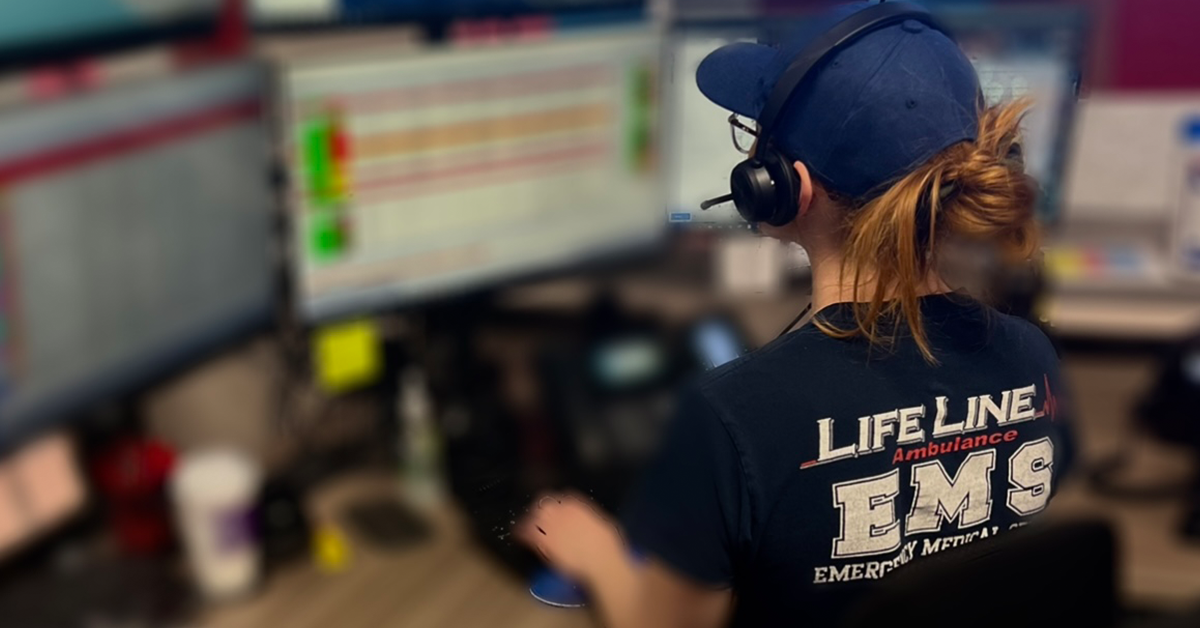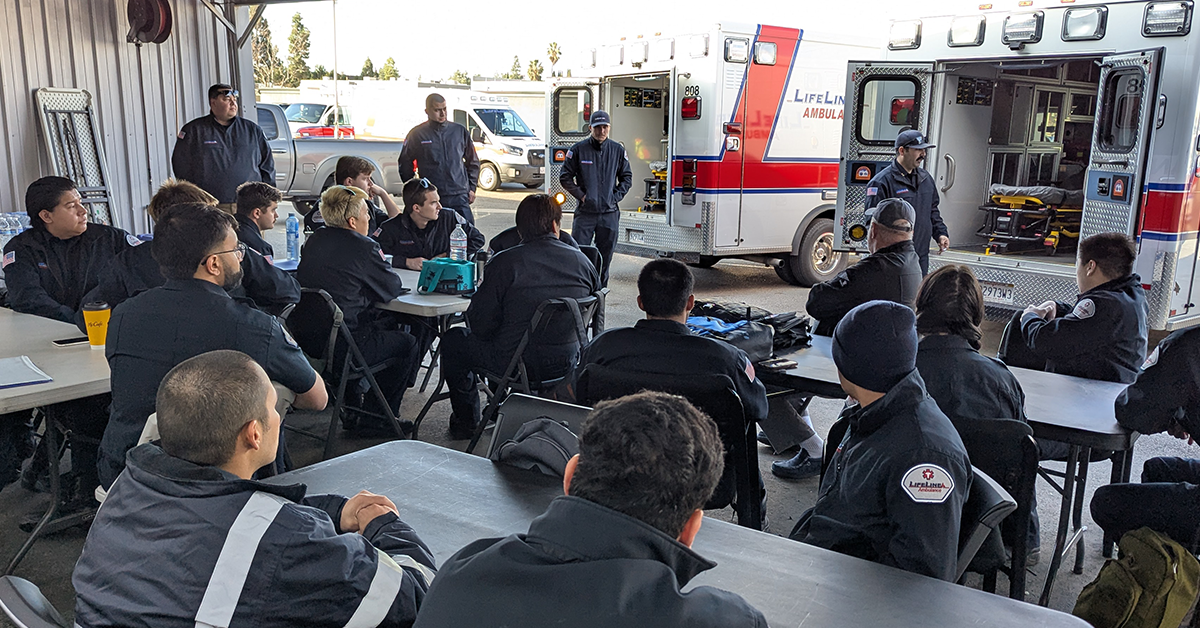Transitioning from military service to civilian life can be challenging, especially when choosing a new career path. For many veterans, a career in emergency medical services (EMS) offers an ideal combination of purpose, structure, and camaraderie. EMS roles capitalize on the skills veterans bring from their military experience, such as leadership, discipline, and adaptability, while providing opportunities to continue serving their communities in meaningful ways.
1. Parallels Between Military and EMS Work
The transition from military service to EMS can feel seamless due to the similarities between the two fields.
A Mission-Driven Environment
Just as in the military, EMS professionals operate in high-stakes environments where their actions have a direct impact on lives. Veterans thrive in mission-driven roles, making EMS a natural fit for their dedication and sense of duty.
Teamwork and Leadership
EMS relies heavily on teamwork, often requiring clear communication and coordinated efforts under pressure. Veterans are trained to work cohesively in units, whether leading or supporting, making them well-suited for EMS teams.
Adaptability in High-Stress Situations
Military training equips veterans to remain calm, think critically, and adapt to rapidly changing circumstances—skills that are crucial for EMS professionals responding to emergencies.
Commitment to Service
Both the military and EMS prioritize serving others. Veterans who want to continue making a difference in their communities find that EMS provides a meaningful way to give back.
2. Why EMS is a Rewarding Career for Veterans
A Sense of Purpose
One of the most challenging aspects of transitioning to civilian life is finding a sense of purpose. EMS provides a fulfilling career where veterans can continue saving lives, helping others, and contributing to public safety.
Opportunities for Growth
EMS offers clear career advancement paths, allowing veterans to build on their skills and achieve new certifications, such as:
- Emergency Medical Technician (EMT): The entry-level position for EMS professionals.
- Paramedic: A more advanced role requiring additional training and responsibilities.
- Leadership Roles: Opportunities to become supervisors, trainers, or EMS administrators.
Fast-Track Training Options
Many EMS training programs offer expedited pathways for veterans, recognizing their prior experience in medical, logistical, or leadership roles.
Job Stability and Demand
The demand for EMS professionals is consistently high, especially in metropolitan areas like Los Angeles and Southern California. This stability can be particularly appealing to veterans seeking long-term career options.
Flexible Schedules
EMS offers a variety of shifts, which can accommodate veterans who value flexibility or prefer non-traditional work hours.
3. How Veterans’ Skills Translate to EMS Success
Veterans bring a unique set of skills and attributes to EMS, making them invaluable assets to any team.
1. Discipline and Work Ethic
Military training instills discipline and a strong work ethic. Veterans are accustomed to showing up prepared, following protocols, and going above and beyond to complete their mission.
2. Leadership and Decision-Making
Veterans are trained to make quick, informed decisions in high-pressure situations—a critical skill in EMS, where every second counts.
3. Medical Experience
Veterans with combat medic or field medic experience can seamlessly transition into EMS roles, building on their existing knowledge of triage, trauma care, and patient management.
4. Physical and Mental Resilience
EMS work can be physically and emotionally demanding. Veterans, who are already accustomed to these challenges, bring resilience and a strong mindset to the role.
5. Communication Skills
Clear and effective communication is essential in both the military and EMS. Veterans excel at relaying critical information and working collaboratively with diverse teams.
4. LifeLine EMS: Supporting Veterans in Southern California
LifeLine EMS is proud to support veterans as they transition into EMS careers. Here’s how we make the process easier and more rewarding:
Veteran-Friendly Hiring Practices
We actively recruit veterans and recognize the value they bring to our team. Our hiring process considers military experience as a strong foundation for EMS roles.
Training and Certification Assistance
LifeLine EMS partners with local training programs to help veterans obtain the necessary certifications, such as EMT and paramedic licenses. We also provide:
- Guidance on GI Bill benefits for covering training costs.
- On-the-job training and mentorship to ease the transition into EMS work.
Career Advancement Opportunities
We offer pathways for growth within the company, from entry-level EMT positions to leadership roles. Veterans can leverage their military experience to quickly advance their careers.
A Supportive Work Environment
At LifeLine EMS, we understand the challenges veterans may face during their transition. Our supportive culture includes:
- Peer Support Programs: Connecting veterans with fellow team members who have similar experiences.
- Mental Health Resources: Providing access to counseling and stress management services.
- Recognition Programs: Celebrating the contributions of our veteran employees.
6. Why Los Angeles and Southern California are Ideal for Veterans in EMS
Southern California is an excellent region for veterans pursuing EMS careers. Here’s why:
- High Demand for EMS Professionals: The region’s population density and traffic challenges make EMS services essential.
- Veteran-Friendly Communities: Los Angeles and Southern California are home to a large veteran population and numerous resources for transitioning service members.
- Diverse Work Environments: From urban areas to coastal regions and rural communities, EMS professionals in Southern California experience a variety of challenges and opportunities.
7. How to Get Started in EMS as a Veteran
If you’re a veteran interested in EMS, here’s how to get started:
1. Research Training Programs
Look for EMT and paramedic training programs in your area, many of which offer veteran-specific support.
2. Use GI Bill Benefits
Your GI Bill benefits can cover the cost of training and certification programs.
3. Apply to Veteran-Friendly Employers
Reach out to organizations like LifeLine EMS that actively recruit and support veterans.
4. Network with EMS Professionals
Attend career fairs, workshops, and community events to connect with EMS professionals and learn about the field.
Keep Reading
Want more? Here are some other blog posts you might be interested in.
In the high-stakes world of emergency medical services, clear and effective communication can mean the difference between life and death. EMS professionals...
Emergency Medical Services is an ever-evolving field that requires constant learning and adaptation. With medical advancements, technological innovations, and increasing public health...
Emergency Medical Services s a high-stress, physically demanding profession that requires dedication, quick decision-making, and resilience. While the rewards of saving lives...






